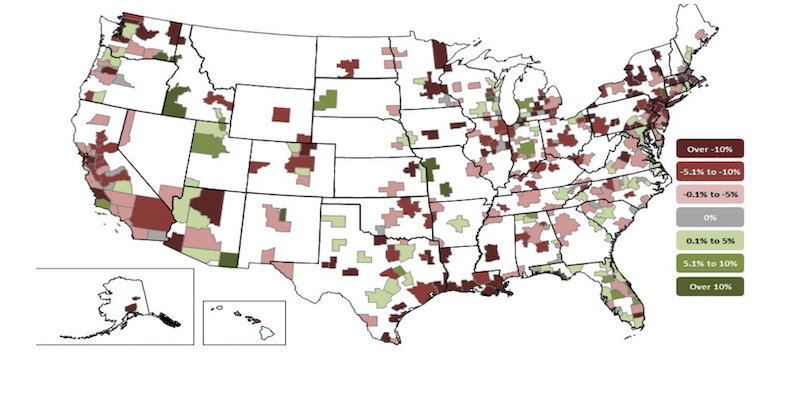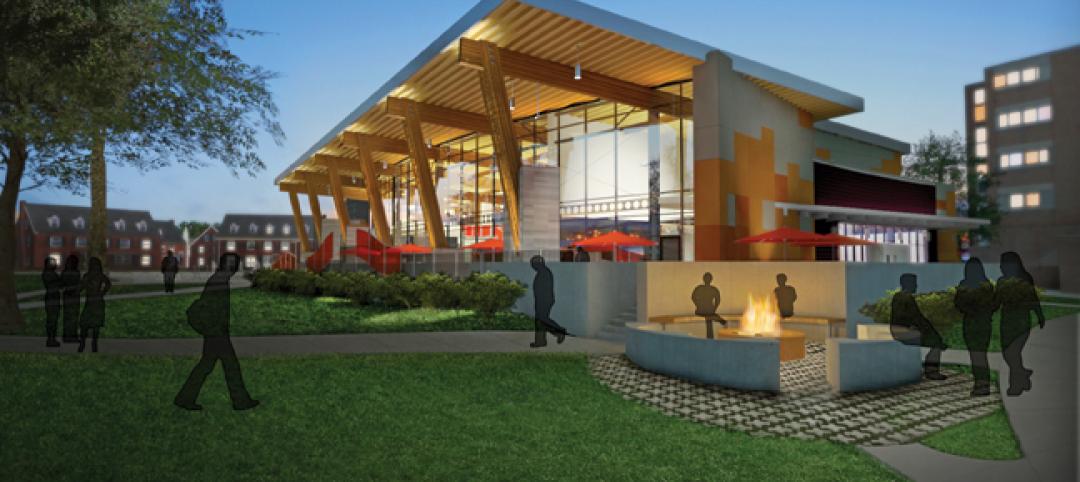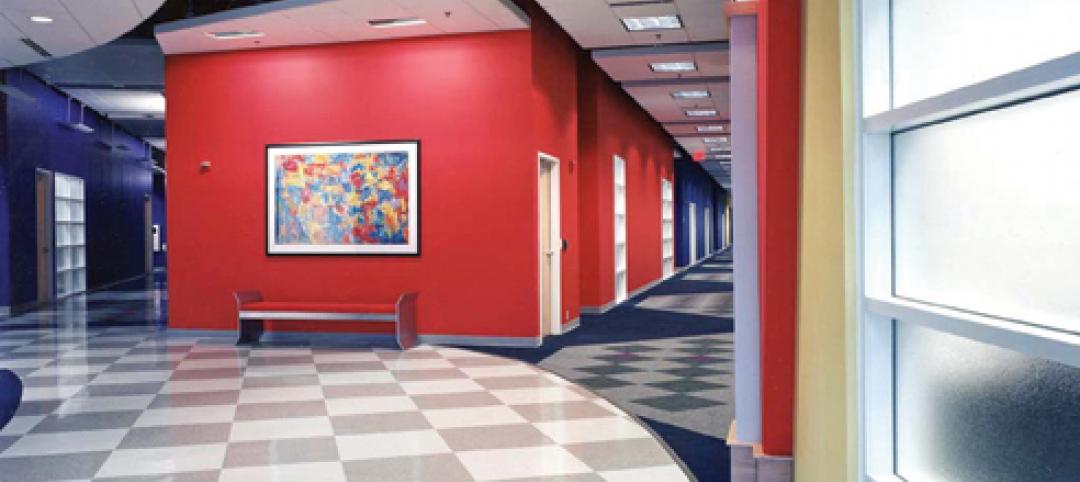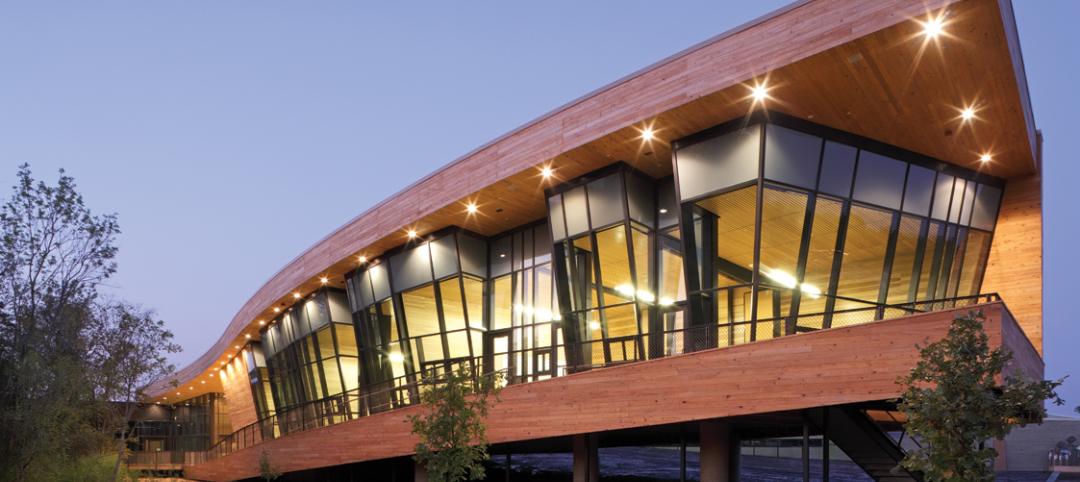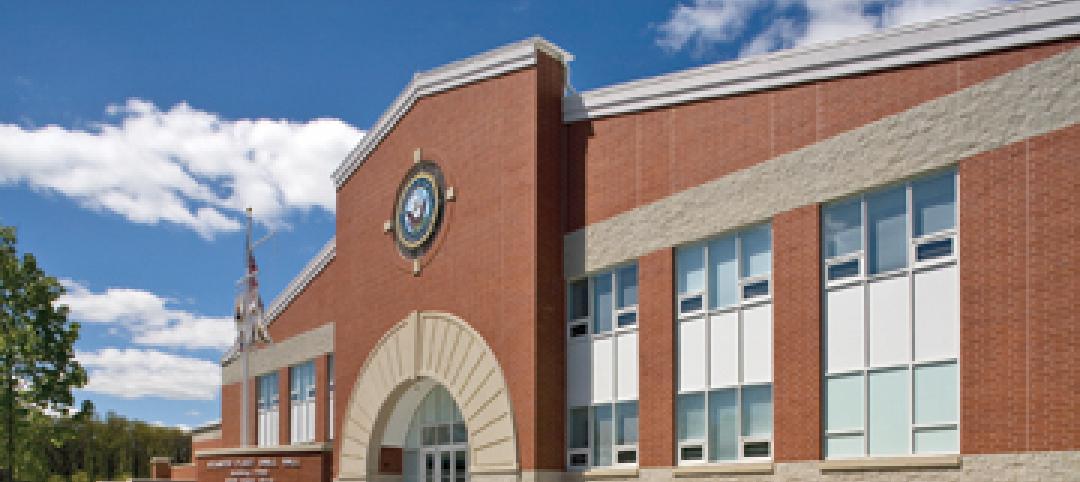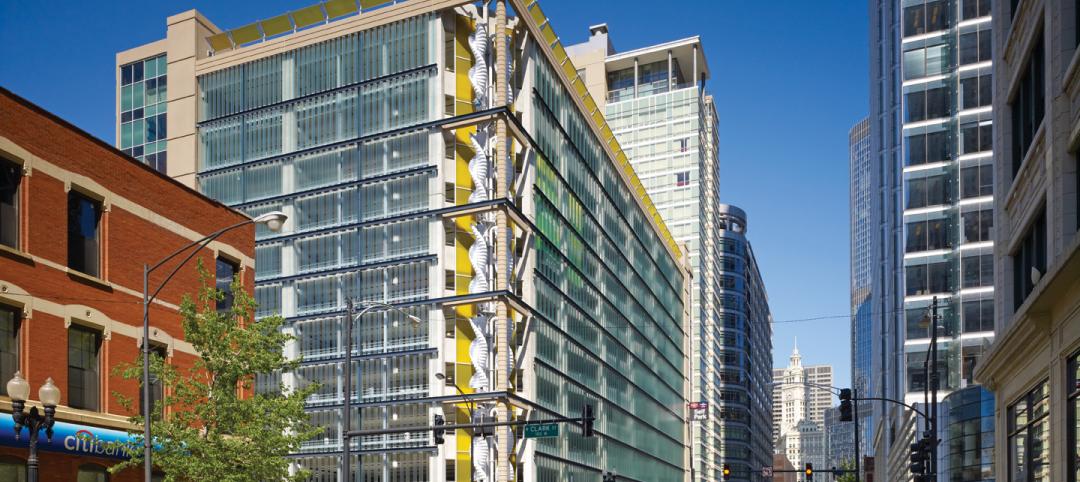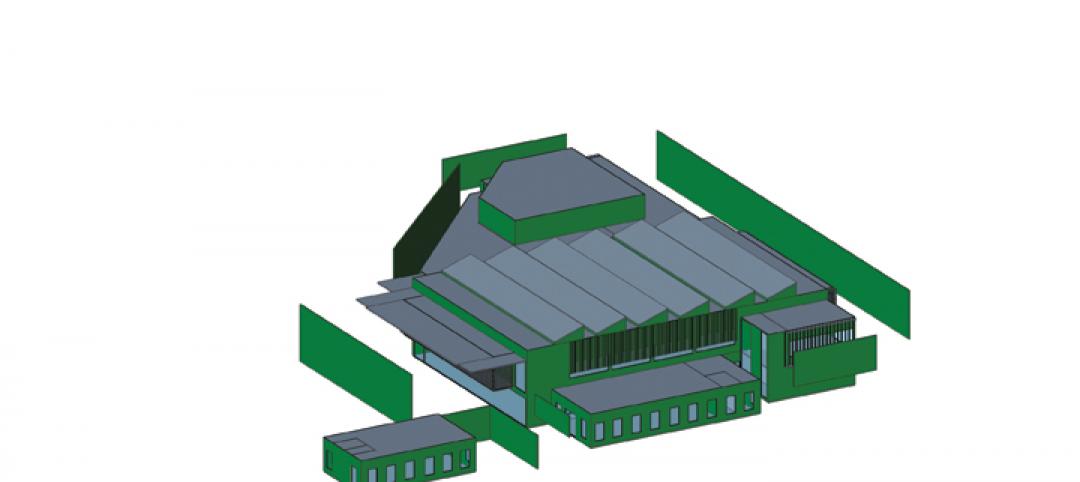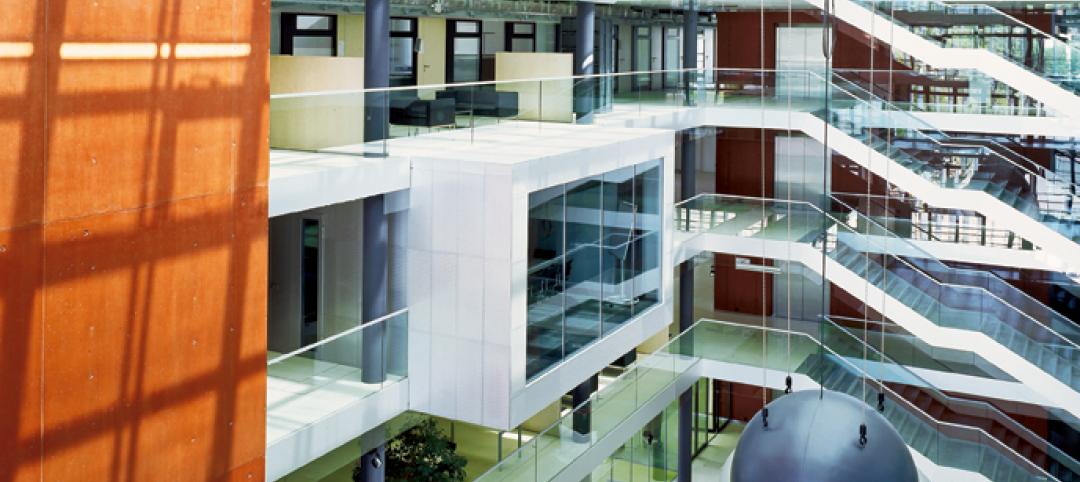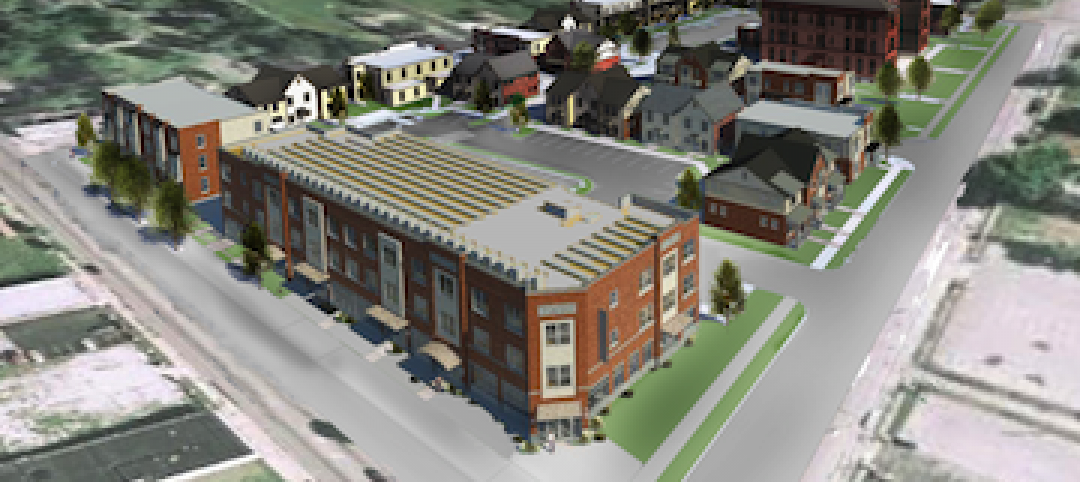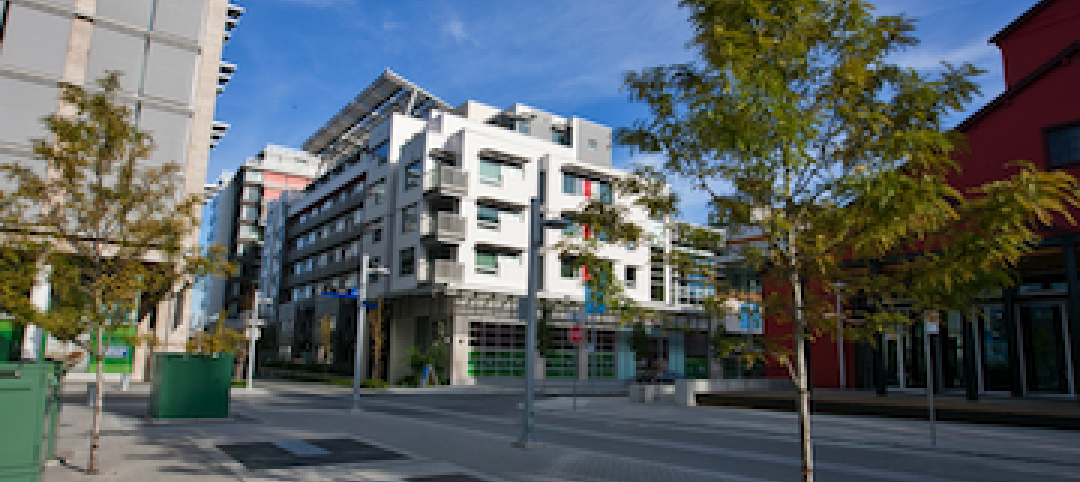Construction officials outlined a series of steps public officials and the construction industry should take to address the impacts of the built environment on climate change. The new initiative from the Associated General Contractors of America is designed to lessen the carbon footprint of the built environment while also making the process of building projects even more efficient.
“The construction industry is the delivery vehicle for building a greener, more climate friendly future,” said Stephen E. Sandherr, the association’s chief executive officer. “Finding a way to ensure that what our members build is more efficient will have a significant impact on climate change.”
Sandherr noted that construction activity accounts for less than two percent of greenhouse gas emissions in the United States. Meanwhile, the built environment accounts for approximately one-third of greenhouse gas emissions. As a result, while the new initiative includes steps construction firms can take to operate more efficiently, the bulk of the effort is focused on pushing for public and private project owners to build more efficient projects and discovering how we can also support them in that process.
Among the measures outlined in the new initiative include calling for a national strategy to invest in physical infrastructure that will make communities more resilient. The association is also calling for an increase in investments and funding opportunities for public and private infrastructure to build more efficient highways, water plants and other facilities.
Public officials should also invest in modernizing federal buildings to make them more efficient. The association is also calling for expanding tax incentives and deductions to encourage the private sector to build more efficient buildings. And the group is calling for expedited permitting for projects that improve efficiency and reduce greenhouse gas emissions.
Association officials also identified steps contractors can take to operate more efficiently. This includes encouraging equipment manufacturers to improve the fuel efficiency of their equipment, helping firms learn how to reduce equipment idling and sharing information about industry innovations like solar powered job site trailers and energy efficient job site lighting.
The new initiative was crafted by a special climate change task force for the association created earlier this year. Representatives from 18 different member firms participated in the task force meetings and helped craft the recommendations outlined in the initiative. “You can’t wish for a greener future, you have to build it,” said Les Snyder, the president of Shikun & Binui America in Pittsburgh and the chair of the association’s climate change task force.
Click here to view details of the association’s new climate change initiative.
Related Stories
| Nov 3, 2010
Dining center cooks up LEED Platinum rating
Students at Bowling Green State University in Ohio will be eating in a new LEED Platinum multiuse dining center next fall. The 30,000-sf McDonald Dining Center will have a 700-seat main dining room, a quick-service restaurant, retail space, and multiple areas for students to gather inside and out, including a fire pit and several patios—one of them on the rooftop.
| Nov 2, 2010
11 Tips for Breathing New Life into Old Office Spaces
A slowdown in new construction has firms focusing on office reconstruction and interior renovations. Three experts from Hixson Architecture Engineering Interiors offer 11 tips for office renovation success. Tip #1: Check the landscaping.
| Nov 2, 2010
Cypress Siding Helps Nature Center Look its Part
The Trinity River Audubon Center, which sits within a 6,000-acre forest just outside Dallas, utilizes sustainable materials that help the $12.5 million nature center fit its wooded setting and put it on a path to earning LEED Gold.
| Nov 2, 2010
A Look Back at the Navy’s First LEED Gold
Building Design+Construction takes a retrospective tour of a pace-setting LEED project.
| Nov 2, 2010
Wind Power, Windy City-style
Building-integrated wind turbines lend a futuristic look to a parking structure in Chicago’s trendy River North neighborhood. Only time will tell how much power the wind devices will generate.
| Nov 2, 2010
Energy Analysis No Longer a Luxury
Back in the halcyon days of 2006, energy analysis of building design and performance was a luxury. Sure, many forward-thinking AEC firms ran their designs through services such as Autodesk’s Green Building Studio and IES’s Virtual Environment, and some facility managers used Honeywell’s Energy Manager and other monitoring software. Today, however, knowing exactly how much energy your building will produce and use is survival of the fittest as energy costs and green design requirements demand precision.
| Nov 2, 2010
Yudelson: ‘If It Doesn’t Perform, It Can’t Be Green’
Jerry Yudelson, prolific author and veteran green building expert, challenges Building Teams to think big when it comes to controlling energy use and reducing carbon emissions in buildings.
| Nov 1, 2010
Sustainable, mixed-income housing to revitalize community
The $41 million Arlington Grove mixed-use development in St. Louis is viewed as a major step in revitalizing the community. Developed by McCormack Baron Salazar with KAI Design & Build (architect, MEP, GC), the project will add 112 new and renovated mixed-income rental units (market rate, low-income, and public housing) totaling 162,000 sf, plus 5,000 sf of commercial/retail space.
| Nov 1, 2010
Vancouver’s former Olympic Village shoots for Gold
The first tenants of the Millennium Water development in Vancouver, B.C., were Olympic athletes competing in the 2010 Winter Games. Now the former Olympic Village, located on a 17-acre brownfield site, is being transformed into a residential neighborhood targeting LEED ND Gold. The buildings are expected to consume 30-70% less energy than comparable structures.
| Oct 27, 2010
Grid-neutral education complex to serve students, community
MVE Institutional designed the Downtown Educational Complex in Oakland, Calif., to serve as an educational facility, community center, and grid-neutral green building. The 123,000-sf complex, now under construction on a 5.5-acre site in the city’s Lake Merritt neighborhood, will be built in two phases, the first expected to be completed in spring 2012 and the second in fall 2014.


